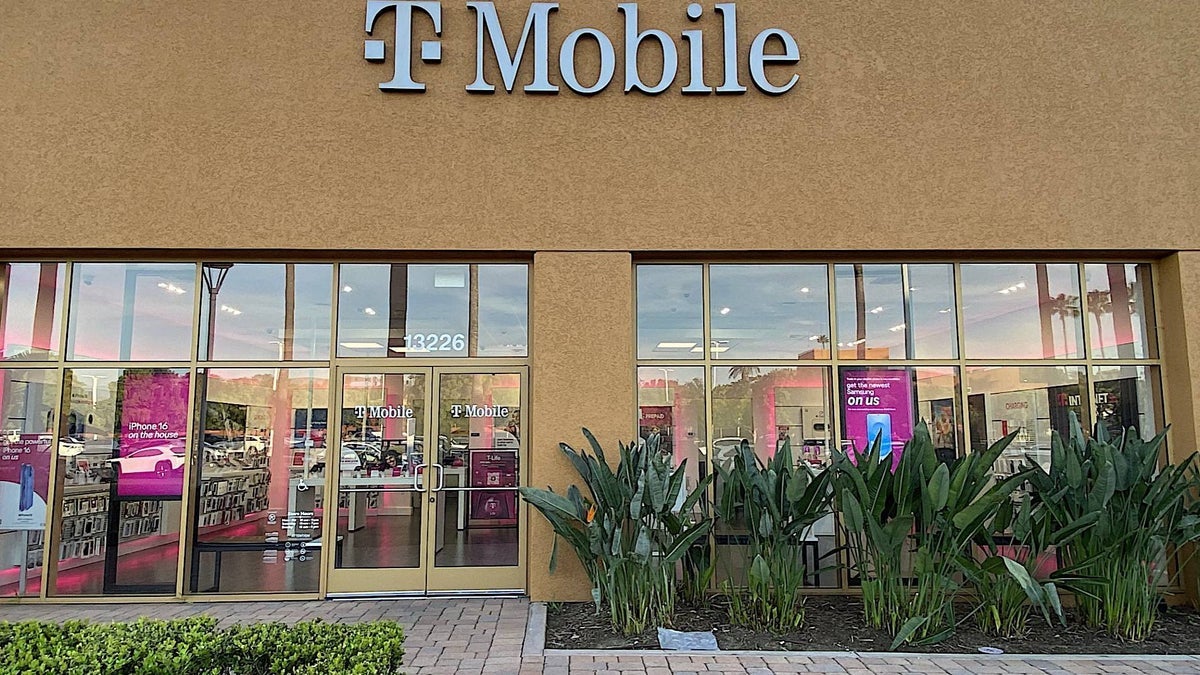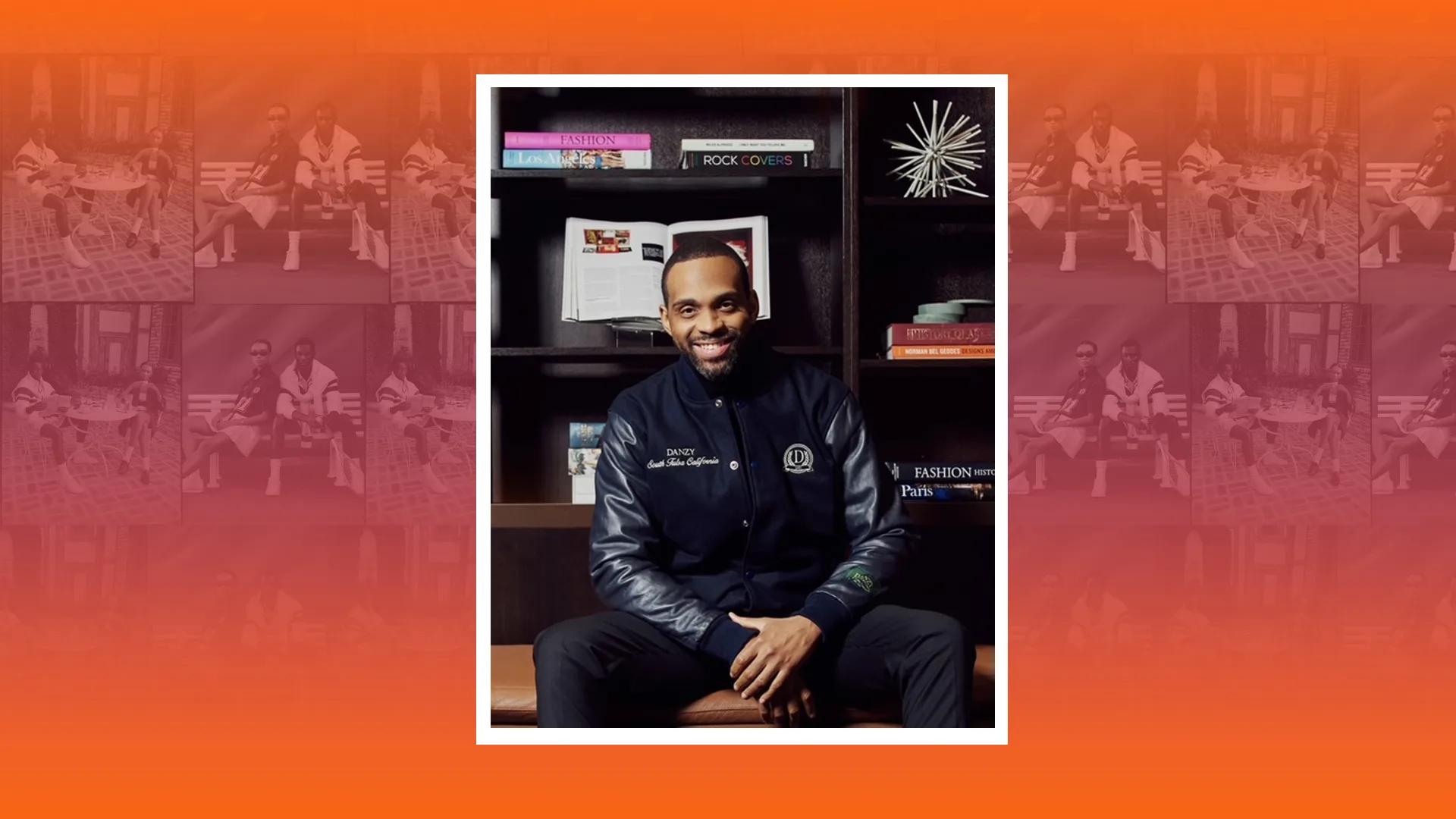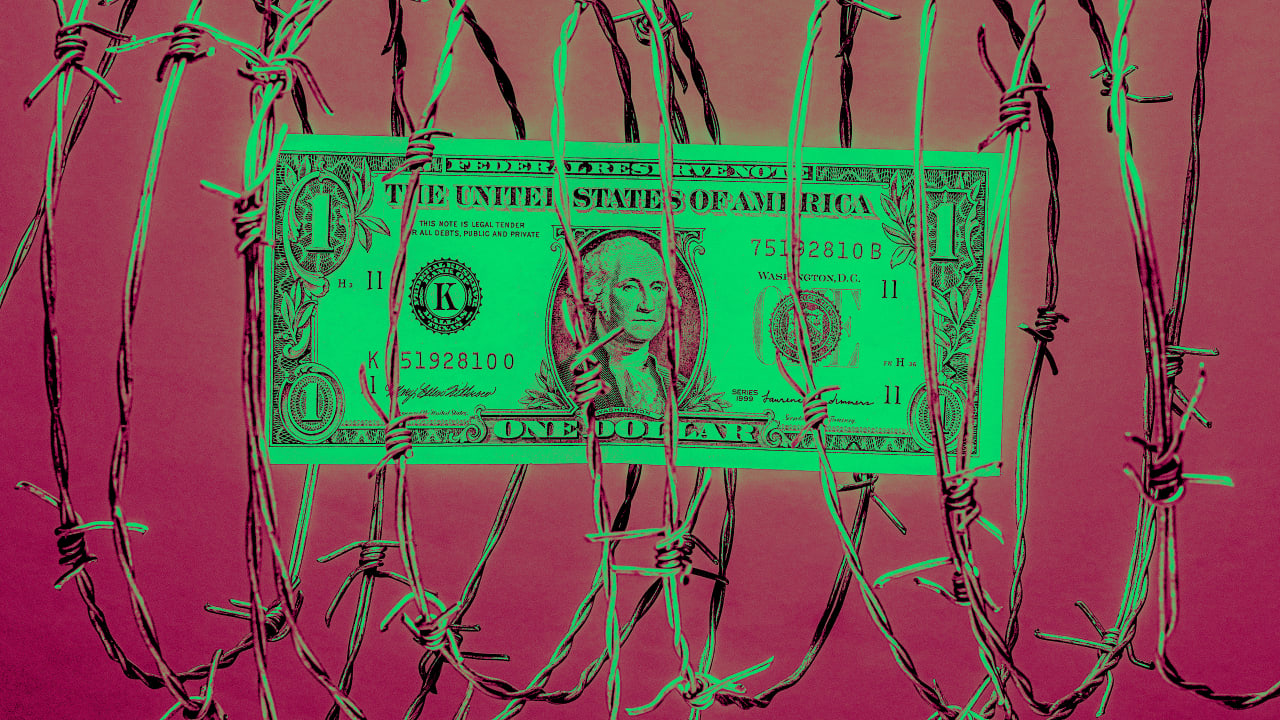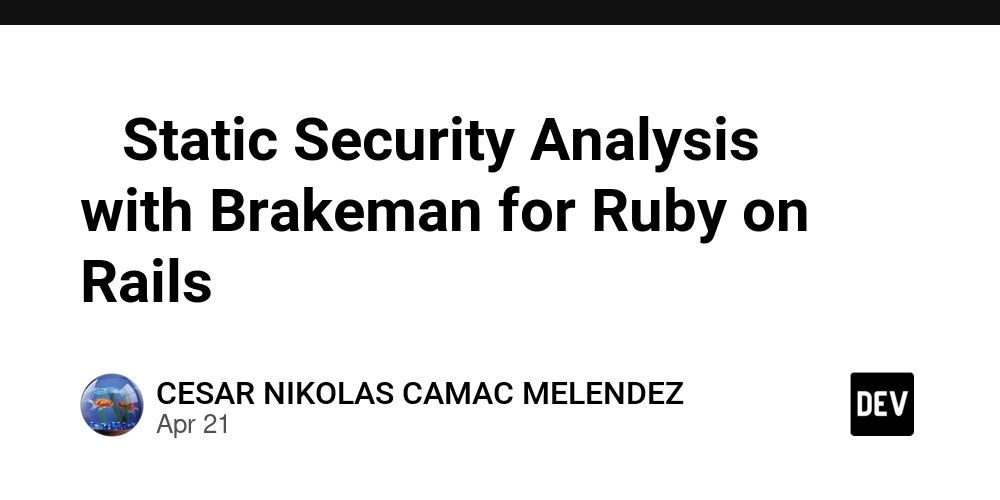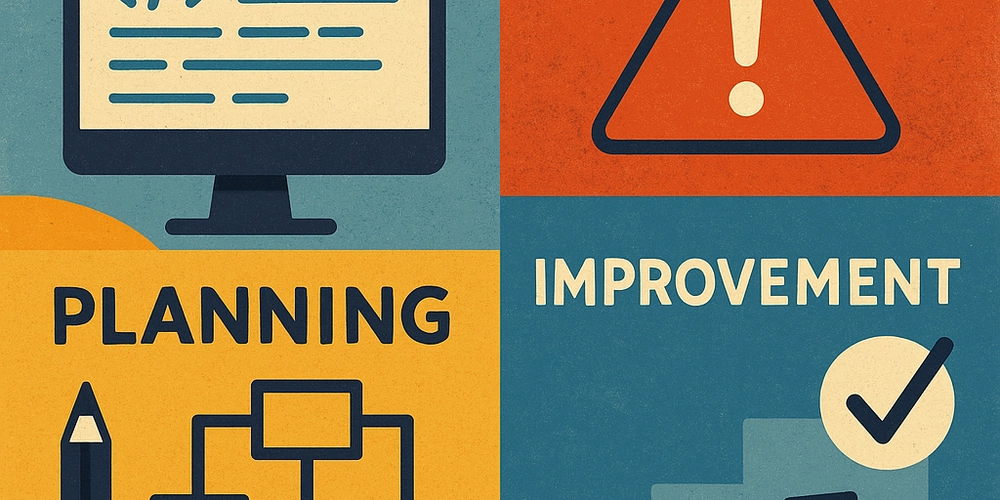Should You Start a Startup with Your Friend?
Starting a business is a challenging journey filled with ups and downs. When you consider embarking on this adventure with a friend, the prospect can seem both exciting and concerning. According to estimates, about 40 percent of business founders were friends before they became business partners. While launching a startup with someone you trust and enjoy spending time with sounds appealing, it's essential to understand the nuanced reality of mixing friendship with business. This comprehensive guide explores what you should consider before taking the plunge, examines real-world success stories and cautionary tales, and offers practical advice to help you navigate this complex territory. The Double-Edged Sword: Benefits and Risks of Friend Partnerships Potential Benefits Starting a business with a friend offers several distinct advantages. First, you already understand how your business partner operates, allowing you to efficiently delegate responsibilities based on each other's strengths and weaknesses. This familiarity eliminates much of the guesswork that comes with new partnerships and enables a quicker adjustment period. Communication—often cited as a critical factor in business success—can be more comfortable and honest when working with a friend. You're likely already accustomed to having open conversations, making it easier to address challenging topics rather than spending time building that comfort level with a new partner. Perhaps most importantly, having a friend by your side provides a built-in support system. As Devi Jagadesan, who co-founded Sparkle with her best friend Karmen Auble, explains: "Starting a business with your best friend is a special experience, because you get to share your vision and accomplishments with the person closest to you... when you feel unmotivated or lost... you're always there to support each other, and to remind each other of why you're doing what you're doing when times get tough." Potential Risks Despite these benefits, there are significant risks involved. One of the most common concerns is that the business relationship will change your friendship dynamic. When financial and personal risks enter the equation, the nature of your relationship inevitably shifts. Your interactions are no longer purely social—they now include business considerations and success metrics. Emotions can run particularly high in friend-founded businesses. As one Reddit user shared from personal experience: "I partnered with a friend one time and it was miserable. You find out shit about your friend that will drive you insane. When you work together you also don't have that release outside of work with your friend. You're just always together and if shit isn't going well it's just 24/7 misery." Many experts and entrepreneurs offer a stark warning: "Don't mix friendship with business. Both are things that can fail and you're basically doubling your exposure by mixing the two." This sentiment is echoed across multiple sources, with many entrepreneurs categorically advising against friend partnerships. Success Stories: When Friendship Fuels Business Triumph Despite the risks, there are notable success stories of businesses founded by friends that have thrived. These examples demonstrate that with the right approach, friend partnerships can lead to extraordinary results. Airbnb: A Friendship that Revolutionized Travel Airbnb's founding story is a testament to the power of complementary skills in friend partnerships. Nathan Blecharczyk moved to San Francisco and found a roommate through Craigslist: Joe Gebbia. They immediately connected, with Blecharczyk later noting, "While I lived with Joe I came to appreciate two things about him—he worked just as hard as I did, and his skills complemented mine. I have the technical abilities, and he had the creative design skills." Later, Gebbia's college friend Brian Chesky moved in, and the three friends developed the idea for Airbnb during a design conference when there was a shortage of hotel rooms. Their friendship, combined with complementary skills and shared work ethic, laid the foundation for what would become a multi-billion-dollar company. Warby Parker: Four Friends Disrupting an Industry Warby Parker founders Neil Blumenthal, Dave Gilboa, Andrew Hunt, and Jeffrey Raider became friends during graduate school before launching their eyewear company. Their friendship provided the trust and collaborative environment needed to challenge an established industry and create an innovative business model. Cautionary Tales: When Business Strains Friendship For every success story, there are numerous examples of friend-founded startups that failed, often taking the friendship down with them. The Norwegian Startup's Downfall One entrepreneur shared a particularly poignant story on Reddit: "7 years ago, we started a startup to challenge Carta, we raised $1M, go
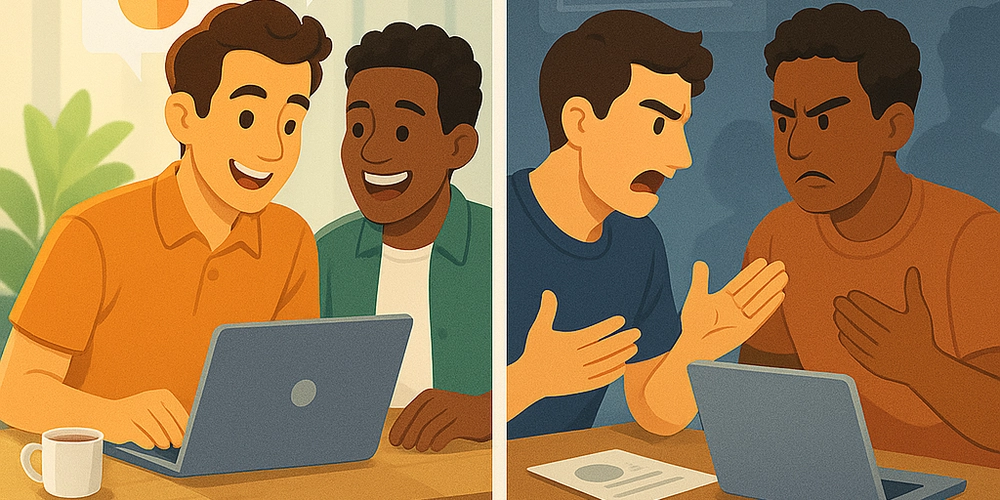
Starting a business is a challenging journey filled with ups and downs. When you consider embarking on this adventure with a friend, the prospect can seem both exciting and concerning. According to estimates, about 40 percent of business founders were friends before they became business partners. While launching a startup with someone you trust and enjoy spending time with sounds appealing, it's essential to understand the nuanced reality of mixing friendship with business. This comprehensive guide explores what you should consider before taking the plunge, examines real-world success stories and cautionary tales, and offers practical advice to help you navigate this complex territory.
The Double-Edged Sword: Benefits and Risks of Friend Partnerships
Potential Benefits
Starting a business with a friend offers several distinct advantages. First, you already understand how your business partner operates, allowing you to efficiently delegate responsibilities based on each other's strengths and weaknesses. This familiarity eliminates much of the guesswork that comes with new partnerships and enables a quicker adjustment period.
Communication—often cited as a critical factor in business success—can be more comfortable and honest when working with a friend. You're likely already accustomed to having open conversations, making it easier to address challenging topics rather than spending time building that comfort level with a new partner.
Perhaps most importantly, having a friend by your side provides a built-in support system. As Devi Jagadesan, who co-founded Sparkle with her best friend Karmen Auble, explains: "Starting a business with your best friend is a special experience, because you get to share your vision and accomplishments with the person closest to you... when you feel unmotivated or lost... you're always there to support each other, and to remind each other of why you're doing what you're doing when times get tough."
Potential Risks
Despite these benefits, there are significant risks involved. One of the most common concerns is that the business relationship will change your friendship dynamic. When financial and personal risks enter the equation, the nature of your relationship inevitably shifts. Your interactions are no longer purely social—they now include business considerations and success metrics.
Emotions can run particularly high in friend-founded businesses. As one Reddit user shared from personal experience: "I partnered with a friend one time and it was miserable. You find out shit about your friend that will drive you insane. When you work together you also don't have that release outside of work with your friend. You're just always together and if shit isn't going well it's just 24/7 misery."
Many experts and entrepreneurs offer a stark warning: "Don't mix friendship with business. Both are things that can fail and you're basically doubling your exposure by mixing the two." This sentiment is echoed across multiple sources, with many entrepreneurs categorically advising against friend partnerships.
Success Stories: When Friendship Fuels Business Triumph
Despite the risks, there are notable success stories of businesses founded by friends that have thrived. These examples demonstrate that with the right approach, friend partnerships can lead to extraordinary results.
Airbnb: A Friendship that Revolutionized Travel
Airbnb's founding story is a testament to the power of complementary skills in friend partnerships. Nathan Blecharczyk moved to San Francisco and found a roommate through Craigslist: Joe Gebbia. They immediately connected, with Blecharczyk later noting, "While I lived with Joe I came to appreciate two things about him—he worked just as hard as I did, and his skills complemented mine. I have the technical abilities, and he had the creative design skills."
Later, Gebbia's college friend Brian Chesky moved in, and the three friends developed the idea for Airbnb during a design conference when there was a shortage of hotel rooms. Their friendship, combined with complementary skills and shared work ethic, laid the foundation for what would become a multi-billion-dollar company.
Warby Parker: Four Friends Disrupting an Industry
Warby Parker founders Neil Blumenthal, Dave Gilboa, Andrew Hunt, and Jeffrey Raider became friends during graduate school before launching their eyewear company. Their friendship provided the trust and collaborative environment needed to challenge an established industry and create an innovative business model.
Cautionary Tales: When Business Strains Friendship
For every success story, there are numerous examples of friend-founded startups that failed, often taking the friendship down with them.
The Norwegian Startup's Downfall
One entrepreneur shared a particularly poignant story on Reddit: "7 years ago, we started a startup to challenge Carta, we raised $1M, got our first 100 users, and tons of optimism. 6 years later we went bankrupt." The founder joined his old friend's startup as CTO and co-founder, but their strategy of starting small in Norway before expanding globally proved to be their undoing. Despite initial success and funding, the business ultimately failed.
Gowalla's Struggle
Gowalla, a location-based social network started in 2007, is another cautionary tale. Despite raising $8.3 million in venture capital, the company struggled to compete with Foursquare and faced technology limitations. Though eventually acquired by Facebook for $3 million, the company is generally considered a failure, demonstrating that even when a friend-founded startup reaches acquisition, it may not achieve the success its founders envisioned.
Setting the Foundation: Structuring Your Friend-Founded Startup
If you're determined to pursue a business with a friend despite the risks, proper structure and planning are essential.
Clear Roles and Responsibilities
One of the most critical steps is defining each partner's roles and responsibilities. As one Reddit user advised: "Clarify your vision for the business and ensure alignment between both partners. Define each partner's roles and responsibilities within the business. Determine who will handle tasks such as operations, marketing, finance, and customer relations."
Experts consistently emphasize the importance of complementary skills. The Airbnb founders succeeded partly because they had different strengths that worked well together. When considering a friend as a business partner, assess whether your skills complement each other rather than overlap.
Equity and Financial Considerations
Many entrepreneurs suggest avoiding equal splits, despite how fair it might seem initially. As one experienced founder noted: "Splitting everything equally sounds easier & fair, but 100% far from a good strategy. You and your friends need to identify each one's part in the business. What is everyone putting on the table, not necessarily cash, but value wise as well."
The "Slicing Pie" method is recommended by some, which issues equity based on actual contributions. With this approach, time and money are weighted differently—financial investments might use a 4x multiplier, while time contributions use a 2x multiplier.
Decision-Making Process and Conflict Resolution
Establishing clear decision-making processes from the outset is crucial. Determine how major decisions will be made and how conflicts will be resolved. Consider factors such as equal partnership, consensus-based decisions, or designated decision-makers for specific areas.
As one Reddit user emphasized: "Top 3 [things to agree on] are: How are you going to split the earnings (how much will you reinvest into company), what each of you will be tasked with and how it will be measured and compensated, how you will decide on things when there isn't an agreement."
Exit Strategies
Perhaps counterintuitively, planning for potential dissolution is one of the most important steps when starting a business with a friend. Discussing exit strategies upfront—when emotions aren't involved—can prevent acrimonious splits later.
Questions to address include: What happens if one partner wants to leave? How will the business be valued? Are there buyout options? What happens in case of bankruptcy or if one partner can no longer contribute?
Communication is Key: Maintaining Both Business and Friendship
The foundation of both successful businesses and friendships is communication, making it doubly important in friend partnerships.
Separate Business from Friendship
Experts consistently advise maintaining clear boundaries between your business relationship and friendship. As one Reddit user suggested: "I'd try to first differentiate and clearly state with your friends that you need to separate work from friend time (so you guys stay friends)."
This separation helps preserve the friendship while allowing professional decisions to be made without emotional complications. Consider having dedicated business meetings and separate social time where business discussions are off-limits.
Open and Regular Communication
Josh Rubin, CEO of Post Modern Marketing, learned this lesson the hard way: "In a previous version of my company, I employed two of my best friends. I trusted my friends, so I took their word for it when they said that they were staying on top of their roles. But, pretty soon, an IRS audit uncovered that my friend was paying themselves more money than we'd agreed upon, for hours they weren't working. As a result, the relationship, and the business, were damaged beyond repair."
His advice? "Don't start a business on promises alone." Even with friends you innately trust, clear and documented communication about expectations, performance, and finances is essential.
Practical Advice: Do's and Don'ts
Do's
- Do get everything in writing: Having a written partnership agreement provides clarity and a reference point for both partners. This document doesn't need to be complex legal jargon but should cover the key aspects of your business relationship.
- Do communicate openly and often: Regularly check in about business operations and how the friendship is faring with the new dynamic. Address small issues before they become significant problems.
- Do establish clear ground rules: Agree on fundamental aspects like funding, ownership structure, decision-making processes, and profit distribution before launching the business.
- Do seek legal counsel when appropriate: For formal business structures, having legal advice can prevent costly mistakes and misunderstandings later.
- Do recognize each other's strengths and weaknesses: Honest assessment of capabilities allows for more effective role assignment and partnership dynamics.
Don'ts
- Don't start a business with a friend just because you like each other: Compatibility in friendship doesn't automatically translate to business compatibility. As Bret Bonnet, co-founder of Quality Logo Products®, warns: "If you think divorces are messy, business separations are equally devastating."
- Don't make assumptions about goals and commitment: Friends may have different visions for the business or different levels of dedication. These differences should be discussed explicitly.
- Don't skip difficult conversations: Avoiding uncomfortable topics might seem easier in the short term but can lead to significant problems later.
- Don't intermingle personal and business finances: Keep clear separation between business and personal assets and expenses.
- Don't ignore warning signs: If you're already experiencing communication problems or disagreements during the planning stage, these issues will likely intensify once the business is operating.
When Friendship and Business Align: Key Success Factors
Looking across successful friend-founded businesses, certain patterns emerge:
- Complementary skills: Partners bring different but complementary abilities to the table, as with Airbnb's founders.
- Shared work ethic: Successful partners typically have similar dedication levels and work ethics.
- Clear communication practices: Effective partnerships maintain open, honest communication channels.
- Formal agreements: Despite friendship, successful partners establish formal business structures and agreements.
- Respect for boundaries: Maintaining separation between business and friendship helps preserve both relationships.
Conclusion: Is Starting a Startup with Your Friend Right for You?
Starting a business with a friend presents both unique opportunities and challenges. The statistics and experiences shared across various sources suggest a mixed reality—some friend-founded businesses thrive while many others fail, sometimes taking the friendship with them.
Before embarking on this journey, honestly assess your friendship's strength, your complementary skills, and your ability to maintain professional boundaries. Have frank discussions about expectations, commitments, and potential scenarios. Consider starting with a small project before fully committing to a larger venture.
Remember that the goal should be to protect both the business and the friendship. As one entrepreneur wisely noted: "A friendship based on business is better than a business based on friendship." In other words, it's easier to become friends with a good business partner than to maintain a business with a friend if the partnership isn't working.
Ultimately, with careful planning, clear communication, and appropriate structures, some friend partnerships can indeed succeed brilliantly. However, entering such arrangements with open eyes, realistic expectations, and proper preparations is essential for navigating this challenging but potentially rewarding path.
































































































































































![[The AI Show Episode 143]: ChatGPT Revenue Surge, New AGI Timelines, Amazon’s AI Agent, Claude for Education, Model Context Protocol & LLMs Pass the Turing Test](https://www.marketingaiinstitute.com/hubfs/ep%20143%20cover.png)



























































































































![[DEALS] Koofr Cloud Storage: Lifetime Subscription (1TB) (80% off) & Other Deals Up To 98% Off – Offers End Soon!](https://www.javacodegeeks.com/wp-content/uploads/2012/12/jcg-logo.jpg)
























![Is this too much for a modular monolith system? [closed]](https://i.sstatic.net/pYL1nsfg.png)




















































































































_roibu_Alamy.jpg?width=1280&auto=webp&quality=80&disable=upscale#)




 CISO’s Core Focus.webp?#)


































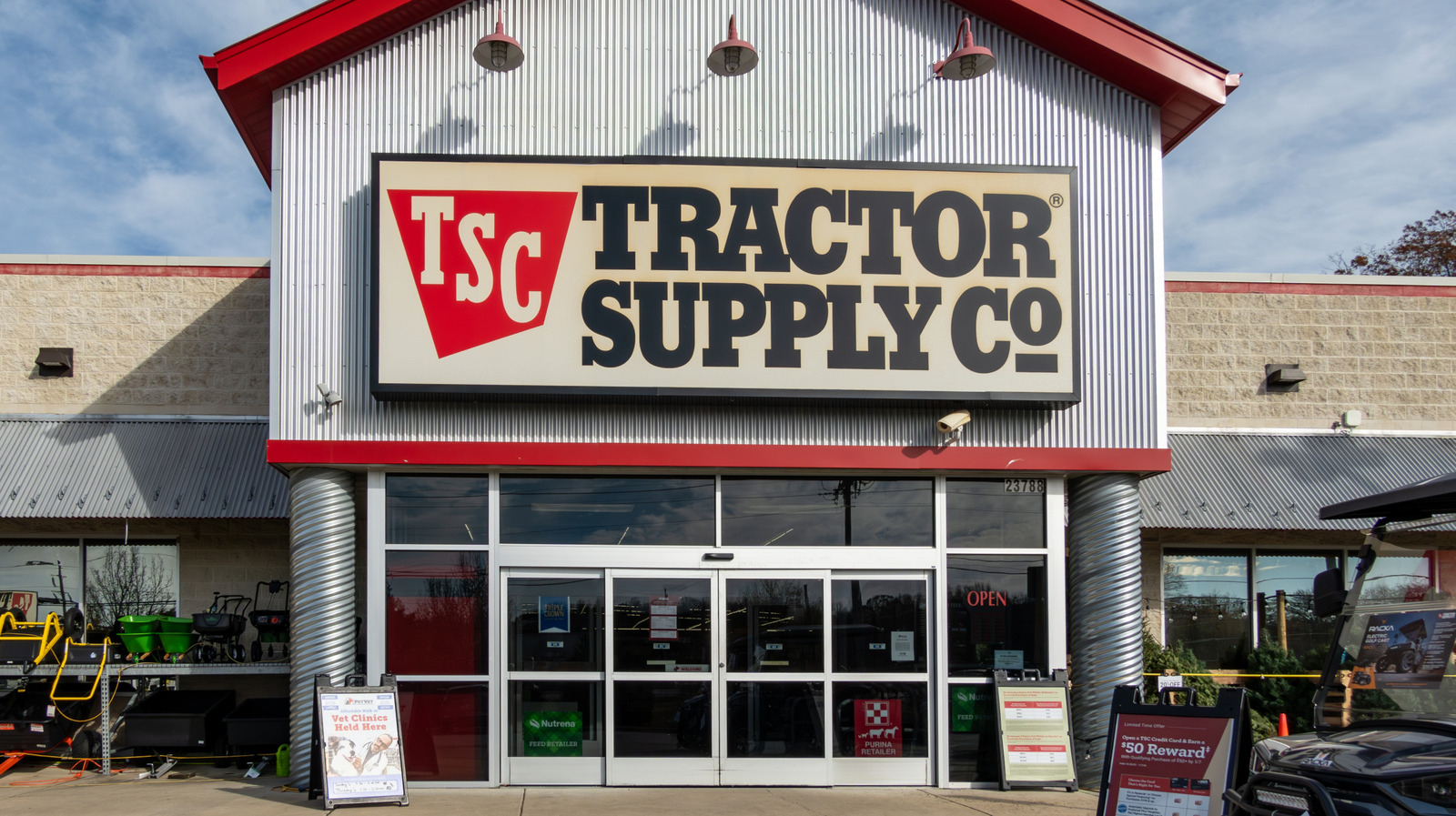












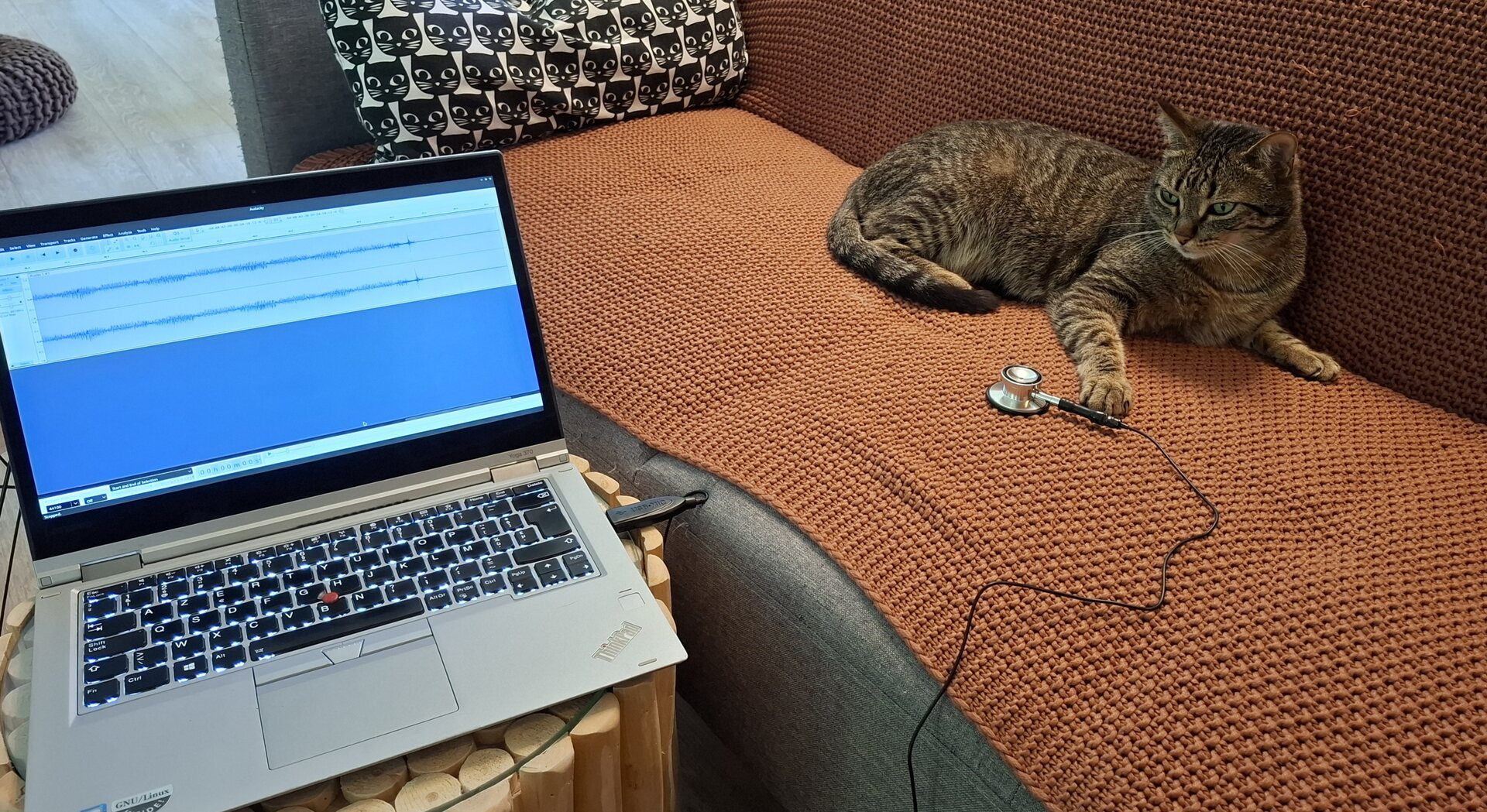



















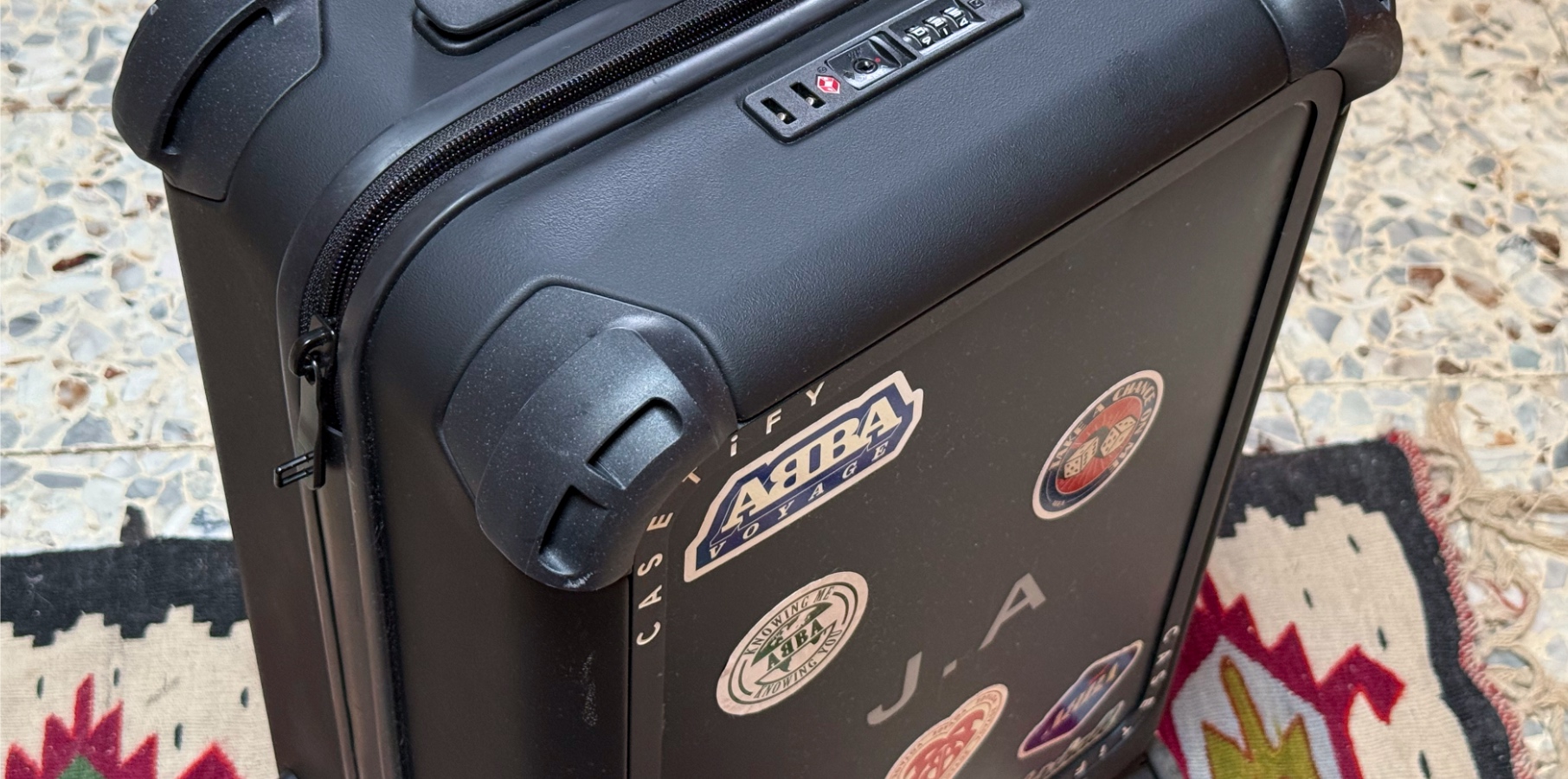












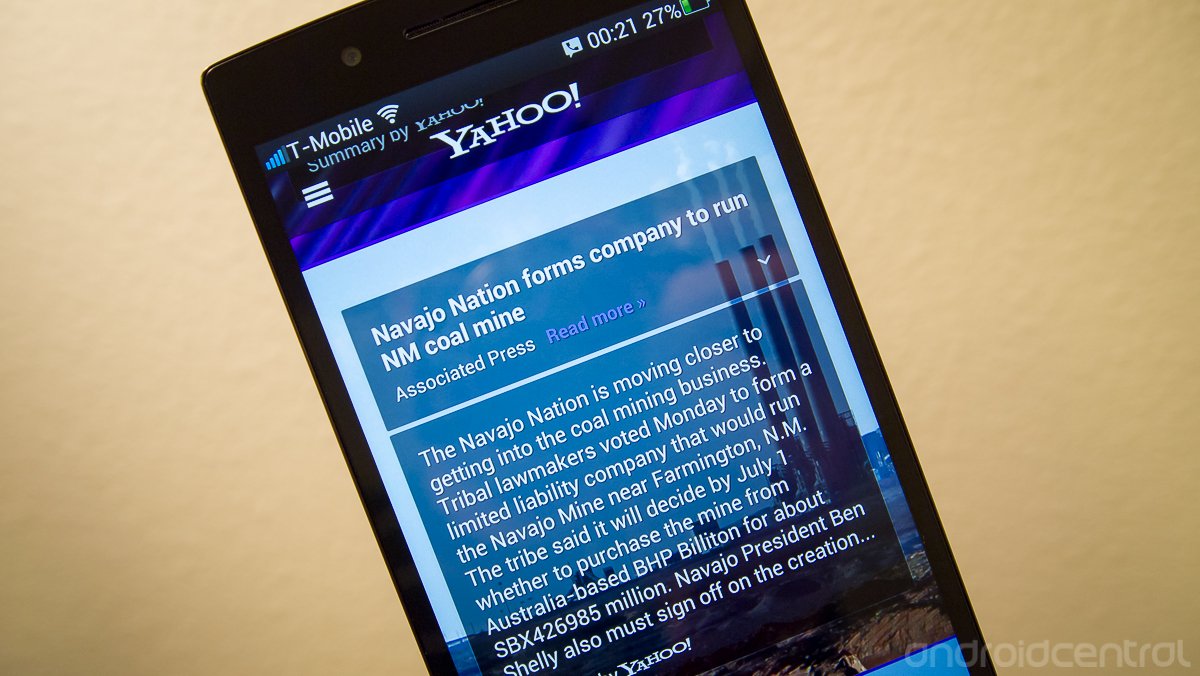


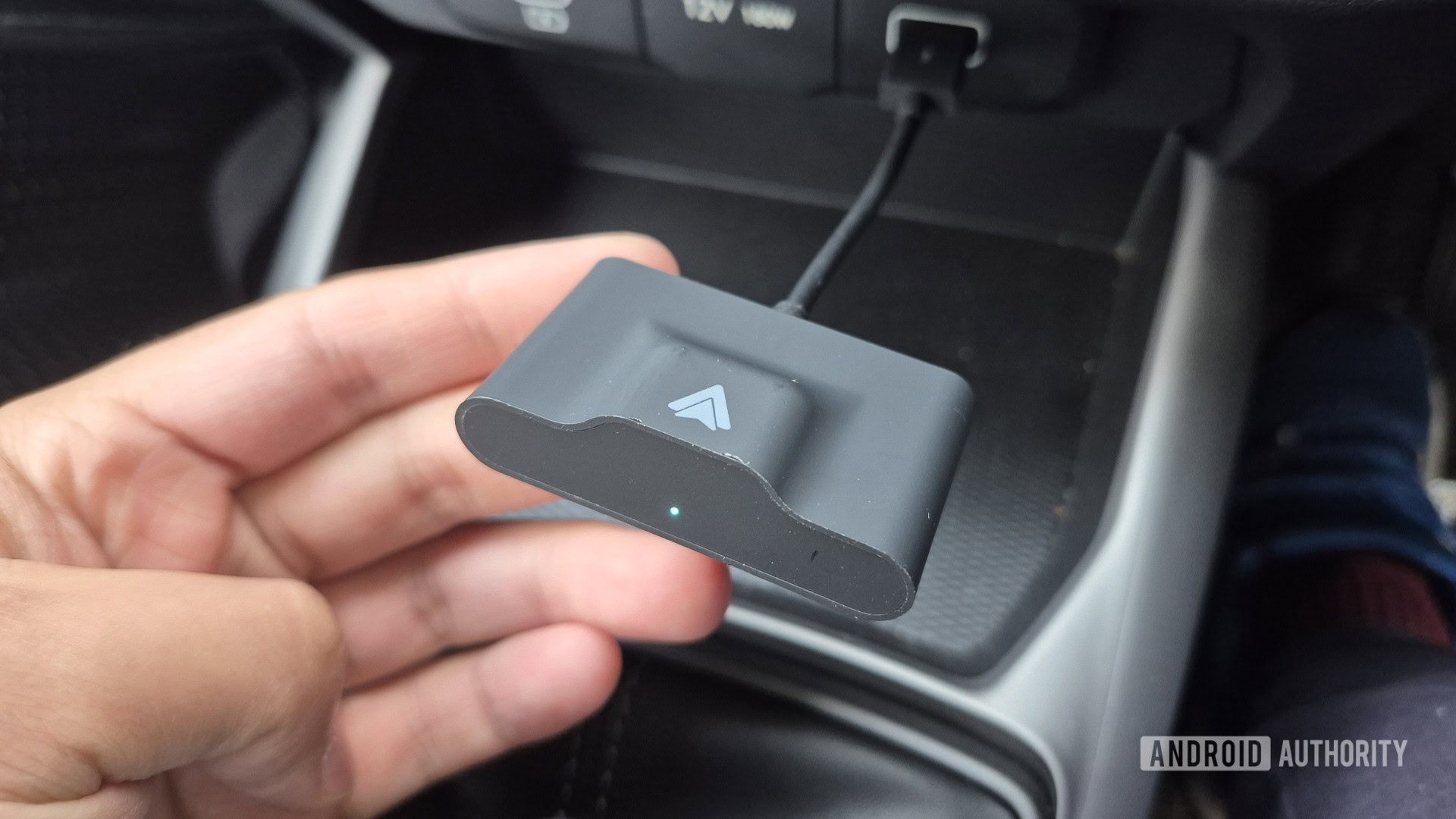


















![M4 MacBook Air Drops to Just $849 - Act Fast! [Lowest Price Ever]](https://www.iclarified.com/images/news/97140/97140/97140-640.jpg)
![Apple Smart Glasses Not Close to Being Ready as Meta Targets 2025 [Gurman]](https://www.iclarified.com/images/news/97139/97139/97139-640.jpg)
![iPadOS 19 May Introduce Menu Bar, iOS 19 to Support External Displays [Rumor]](https://www.iclarified.com/images/news/97137/97137/97137-640.jpg)


















































